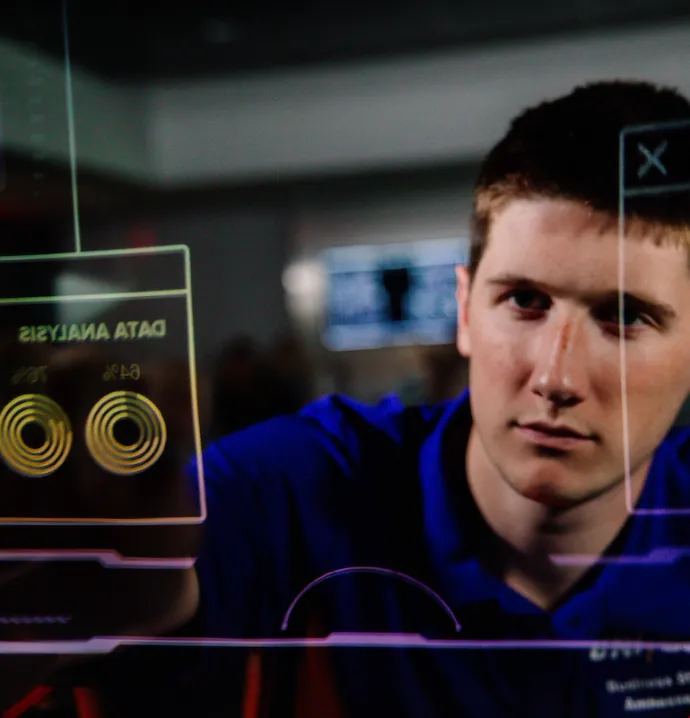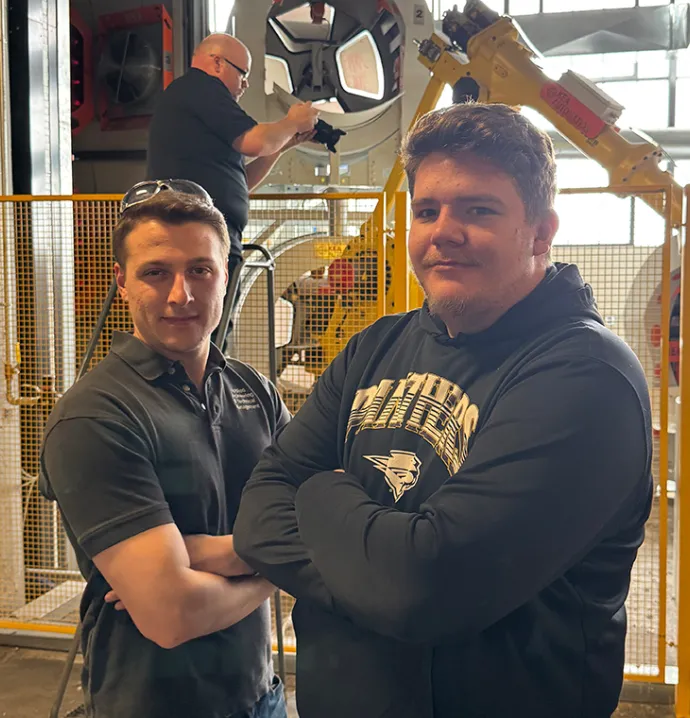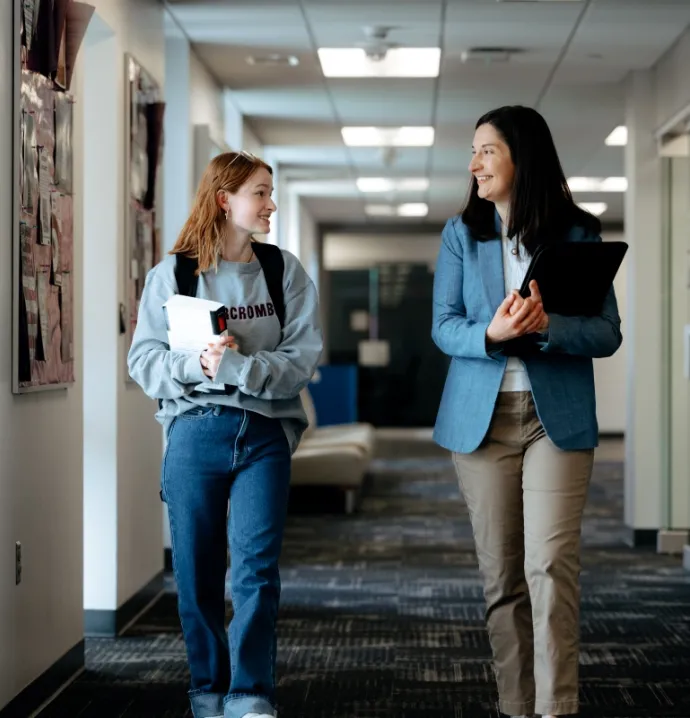UNI engineering clubs offer professional skills-building and community
UNI engineering clubs offer professional skills-building and community
Getting involved with student organizations is a critical part of the student experience at the University of Northern Iowa. If you’re interested in engineering, there are numerous clubs you could join that will allow you to connect with likeminded students and set you up for post-graduation success.
Society of Manufacturing Engineers
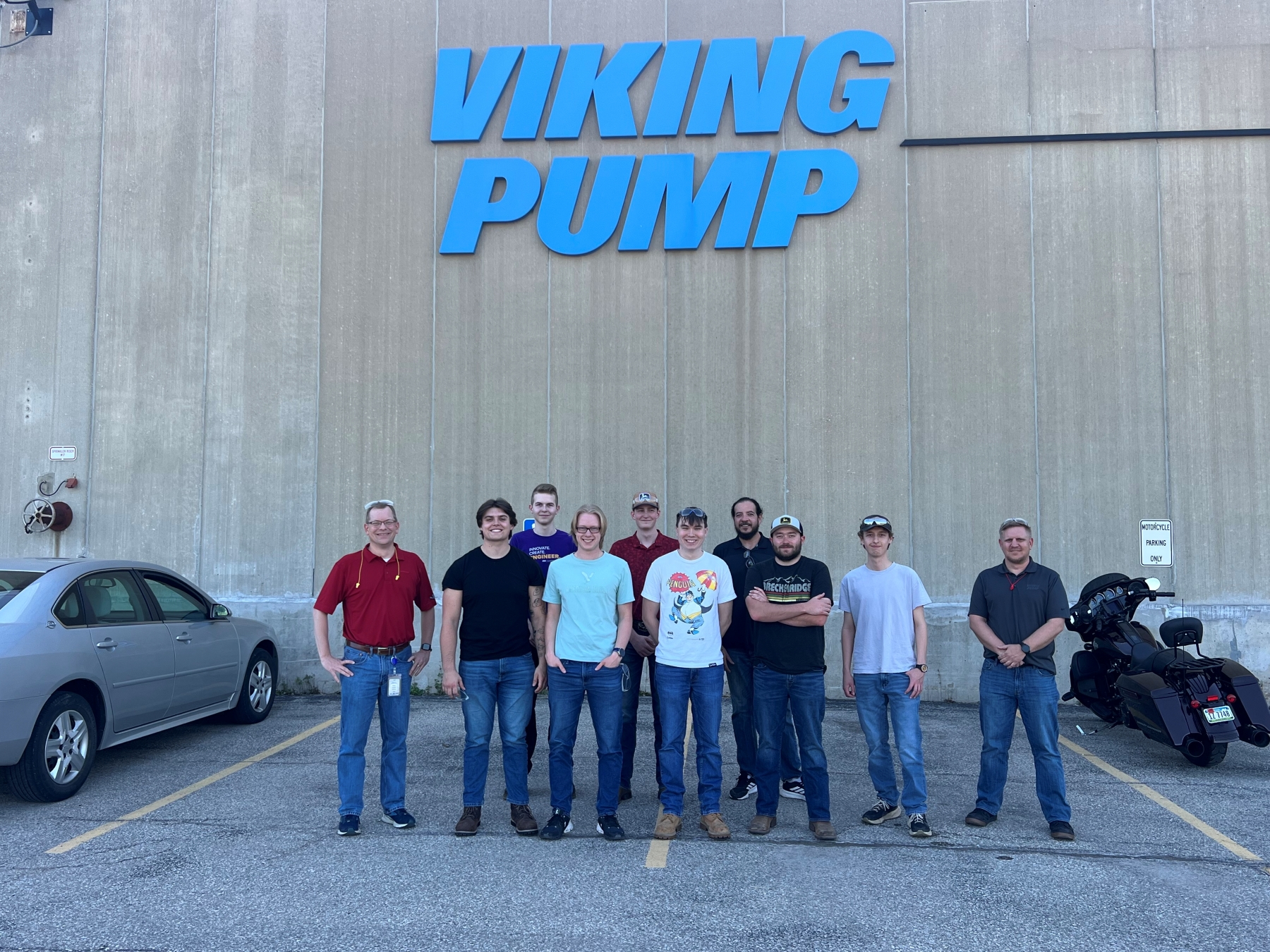
Brody Bruns, a manufacturing engineering technology and technology management major, first learned about the Society of Manufacturing Engineers (SME) through his student work at John Deere. The engineers he worked with emphasized the importance of community and belonged to a senior chapter of SME.
After Bruns involved himself with the senior chapter, the John Deere engineers as well as some of his professors recommended he take charge of the student chapter at UNI.
“We focus on just putting students in the engineering industry, meeting them, getting them involved and experienced,” Bruns explained.
Bruns has built the club around what the student members want to see. So far, that’s meant touring factories and bringing in industry professionals for talks. The group has visited Viking Pump, John Deere, Crank Metals and Martin Brothers to give students an idea of what real-world engineering looks like.
SME also attends an annual metal forming convention in Chicago each year. This is a chance to not only network, but see where the future of the industry is headed, preparing each SME student for the real world of engineering.
Institute of Electrical and Electronics Engineers
Much like SME, the Institute of Electrical and Electronics Engineers (IEEE) at UNI is a vocational organization with global reach.
“There are lots of opportunities for connecting with industry professionals, and IEEE does a lot of academic things,” said Elijah Yates, the group’s president at UNI. “So if you are interested in research, you can do research projects for them and publish papers.”
In 2024, the UNI chapter went to the Nexus Conference in Milwaukee to listen to speakers and compete in contests. This was a highlight of Yates’ involvement.
“Being able to travel and go to these cool conferences and events and meet all these really cool people and other engineers and networking with students all across the country is really fun,” he said.
Yates is majoring in automation engineering technology, electrical engineering technology and technology management. He has connected with most of his friends on campus through either engineering clubs or classes. He describes students who are in the Applied Engineering Building as a “tight-knit community.”
He is proud of what he’s accomplished as the group’s president and knows that work is already positively affecting his career.
“It will help me stand out with future careers and future employers, and it's already helped me get some really cool internship offers last year,” he said.
Technology Club
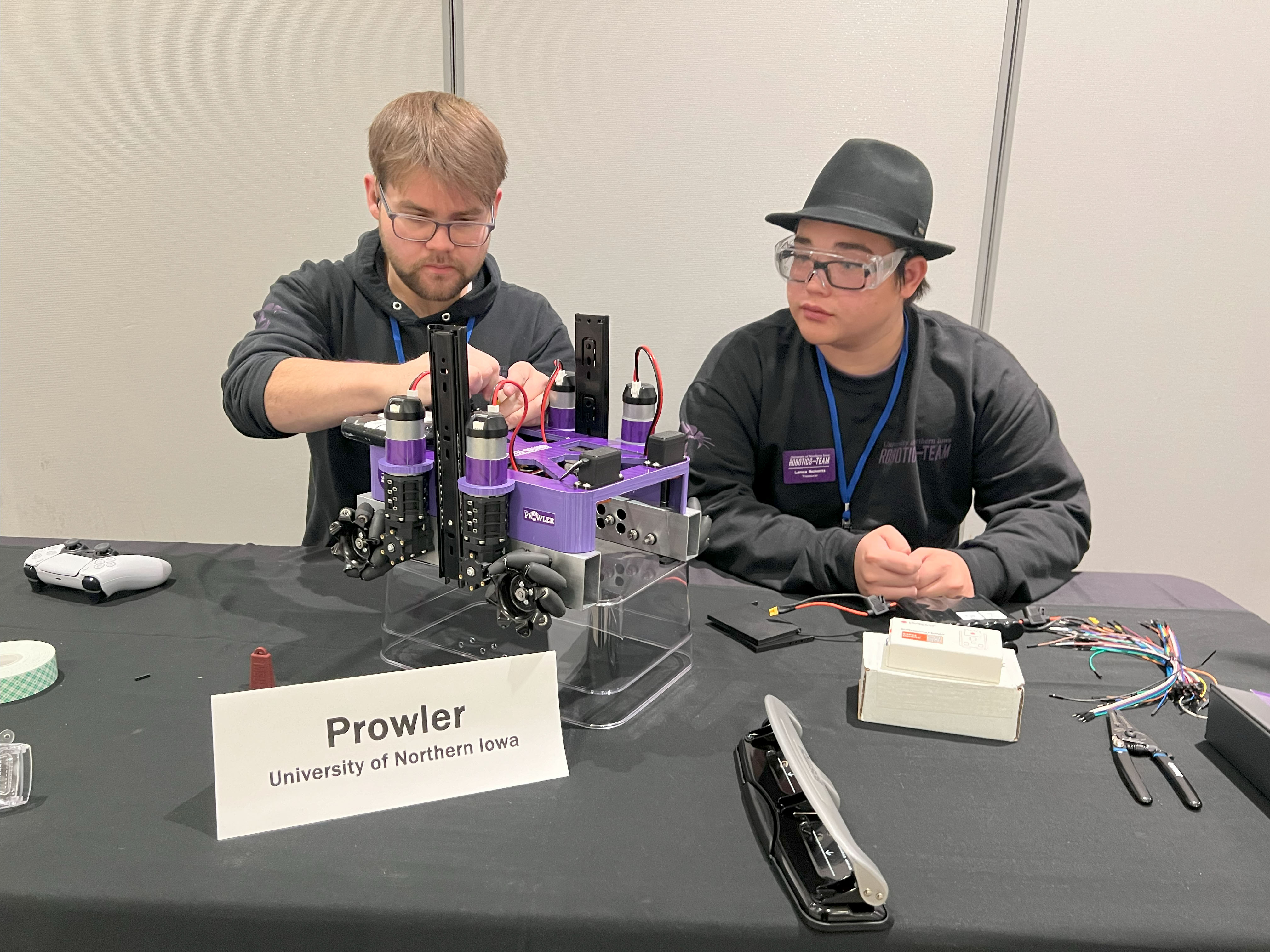
After transferring to UNI from a community college, Nick Schreyer declared three majors at UNI: automation engineering technology, manufacturing engineering technology and technology management. He recalls receiving an email sent to all engineering students about the opportunity to join the Technology Club. When Schreyer learned the club was entering a robotics competition in Las Vegas, he was interested.
The student club spent weeks preparing its robot for the Association for Technology Management and Applied Engineering annual conference.
“Making it happen in such a short timeframe pushes you to your limits,” Schreyer said of the competition. “It's definitely a learning experience on how to manage a multitude of things at once.”
Last year, the group took first place in the best controls and electrical design category, which was something Schreyer played a role in. Beating out many much larger, more prestigious engineering schools in this area was a highlight for Schreyer.
Another highlight is the community he has built through the group. Most of the students are enrolled in engineering programs, but the club also draws students from other programs who are interested in robotics, often after being a part of high school clubs.
“It allows you to be a lot more connected to the college,” he said. “Instead of just showing up for classes and going home, you're actually getting more involved, and you can even represent UNI to other colleges across the United States.”
Schreyer believes being a part of the Tech Club has taught him collaboration and communication. It’s also a great resume builder, especially since he’s the club president who is working on making the club more active throughout the year.
“A lot of employers will see that and be impressed you're able to manage the student organization while still getting good grades in all of your courses and competing in competitions,” said Schreyer.
American Foundry Society
The UNI chapter of the American Foundry Society gives students a chance to tour foundries and attend an annual exhibition. Last year’s exhibition was held in Atlanta and allowed members of UNI’s chapter to see presentations from foundry professionals. But perhaps the most exciting thing AFS members experience is Open Melt Night.
UNI operates one of the largest academic foundry labs in North America. Yet, as AFS President Mehmet Aydin explains, the foundry is often so busy conducting research that students like him who work there don’t get the chance to see many metal pours. That changes on Open Melt Nights when the community is invited into the foundry to make their own molds and witness hot metal being poured and transformed into small objects. Some Open Melt Nights have an industry sponsor, which leads to more networking.
Aydin, who is obtaining a Master of Science in Metal Casting, is grateful for the scholarships AFS has provided him with. Being involved with AFS is also one way he is building professional skills and connections that will serve him well in the workplace.
“Even if you have a 4.0 GPA — if you don't know how to network, if you don't have connections to help you problem-solve, at some point you will get stuck,” he said. “But every day, our members get emails from AFS and we get to see the connections online with people sharing information with each other. That's the very important part for me.”
Editor’s Note: To find out more about any of these clubs or to start participating, email the group presidents.


